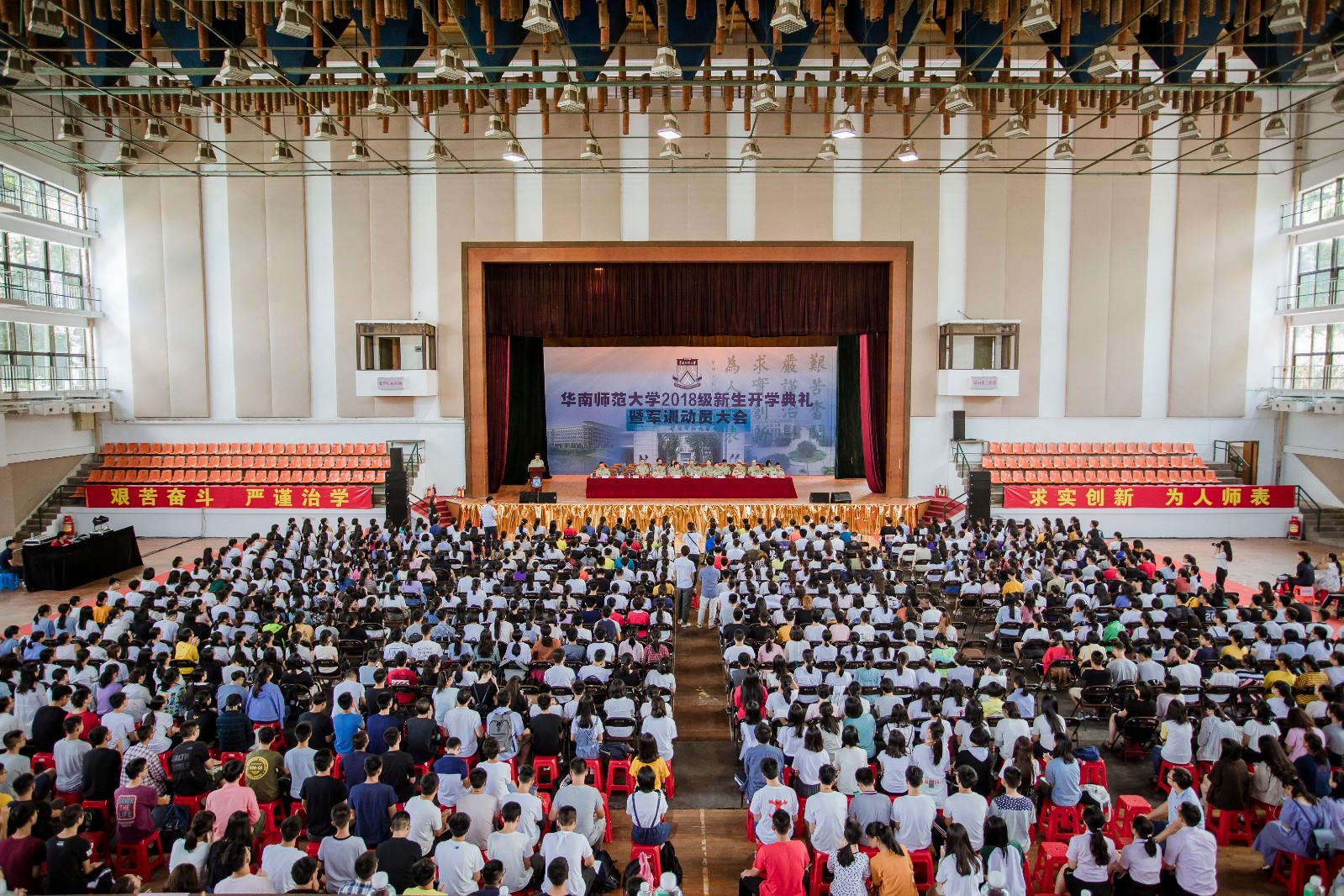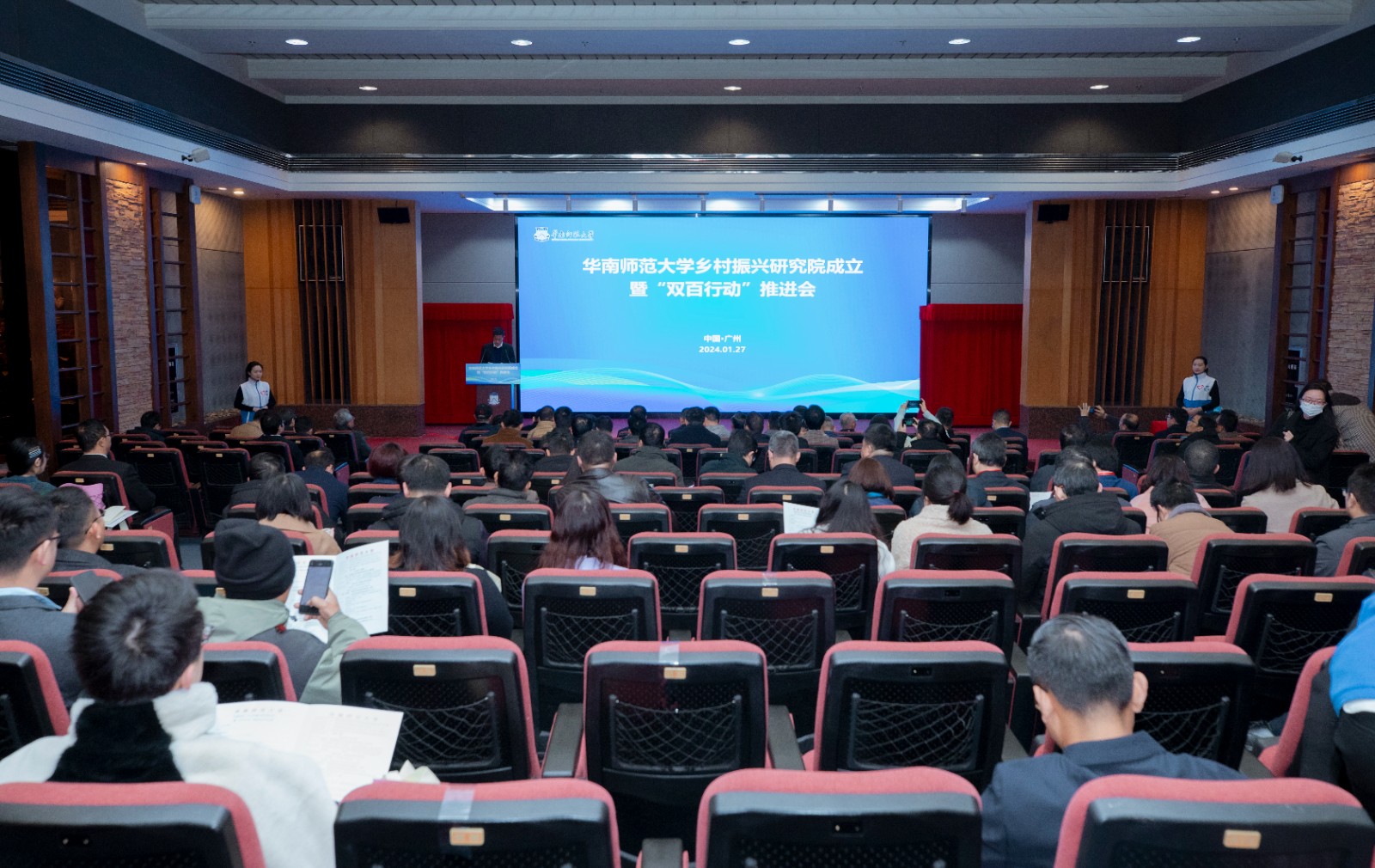
Likes
The founding ceremony of the Institute on Rural Vitalization of South China Normal University and the promotion meeting on "High-quality Development Project for Hundreds of Counties, Thousands of Towns and Myriads of Villages" were held on the Shipai campus of SCNU on January 27. Over 200 people, including government officials, school administrators, teachers, students and entrepreneurs attended the meeting.

The founding ceremony for the Institute was held at SCNU.
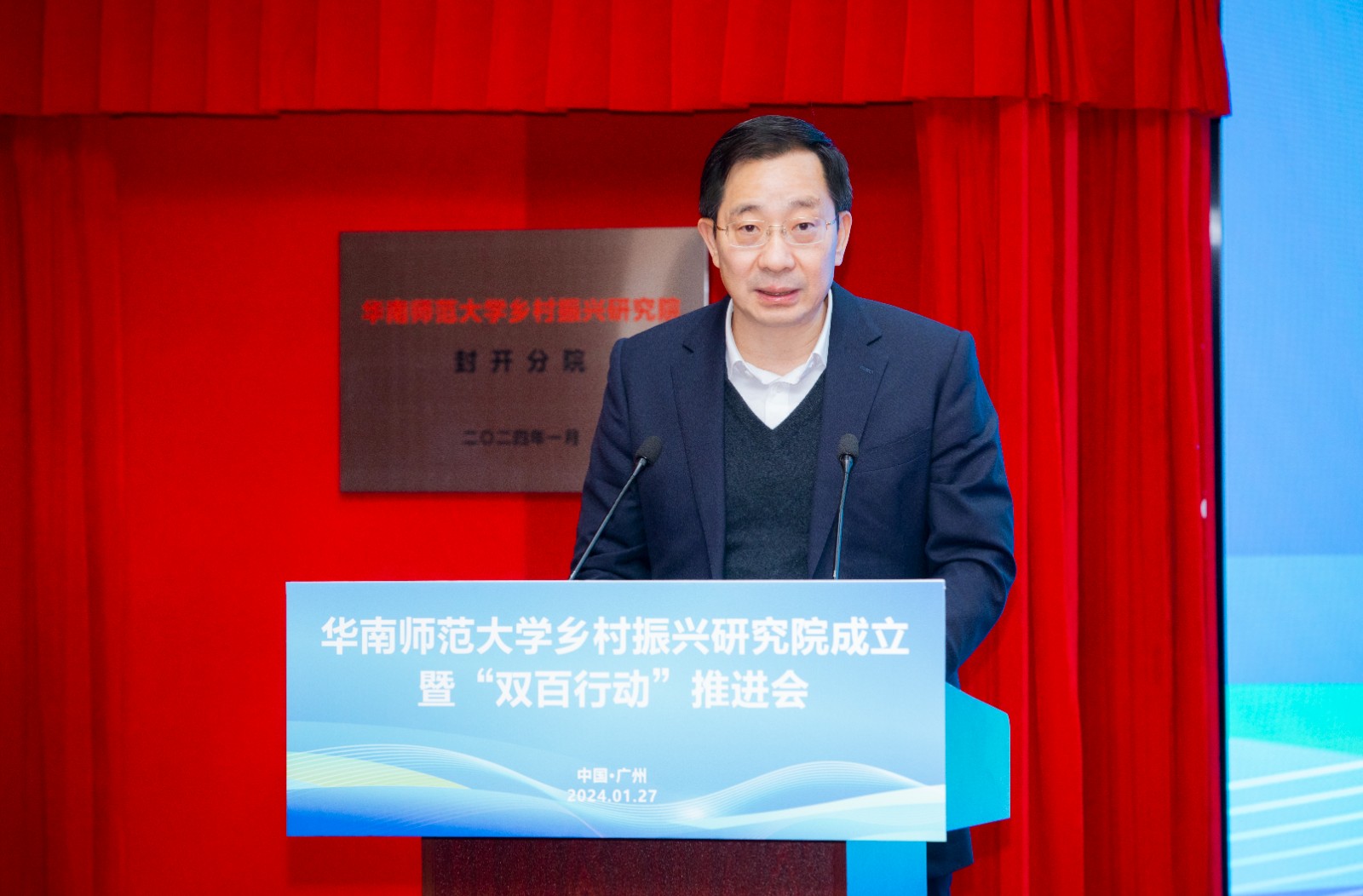
Wang Binwei, secretary of the Party committee of SCNU, delivers a welcome speech.
Wang Binwei, secretary of the Party committee of SCNU, delivered a welcome speech and introduced the basic situation of SCNU with “history, scale, characteristics and vision”. He pointed out that SCNU always bears in mind the country’s most fundamental interests and offers to serve the social needs of Guangdong province, taking the strength of the whole school to carry out the "High-quality Development Project for Hundreds of Counties, Thousands of Towns and Myriads of Villages". The establishment of the Institute on Rural Vitalization is the implementation of promoting coordinated urban-rural and regional development. It also meets the working need of giving full play to SCNU’s advantages and achieving results.
He hoped to take the establishment as an opportunity to explore and build a new system of "project-driven, team collaboration, industry-education integration, school-locality cooperation, and government-school linkage", contributing to the coordinated development of urban and rural areas in Guangdong.
Wang also emphasized that the Institute will actively integrate resources, focus on agriculture, rural areas and farmers to do research, and practically serve the high-quality economic and social development of Guangdong's rural areas.
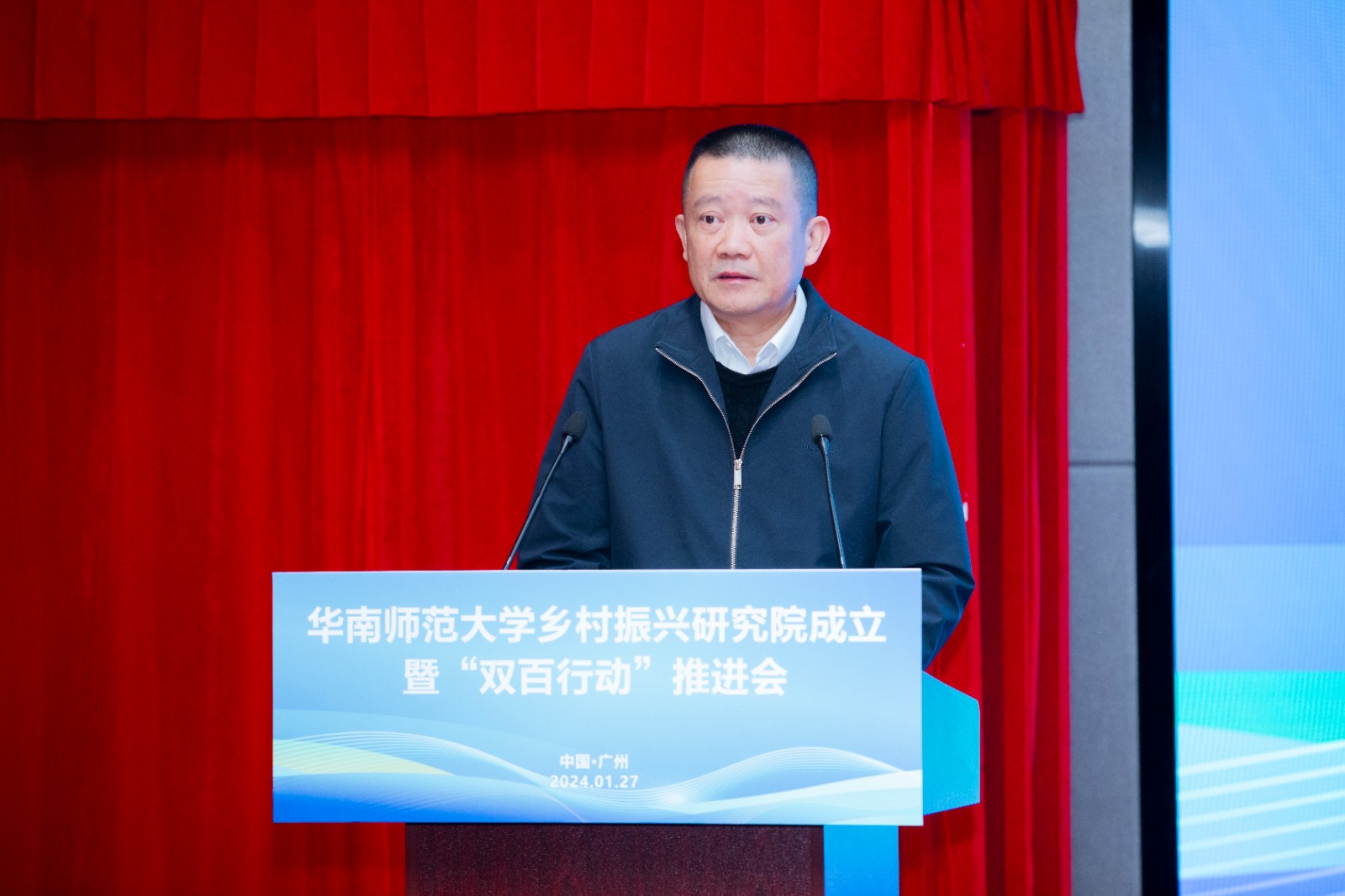
Chen Dezhong, vice-director of the Office of the Command, expresses his hopes for the Institute.
Chen Dezhong, vice-director of the Office of the Command for the "High-quality Development Project for Hundreds of Counties, Thousands of Towns and Myriads of Villages", acknowledged the achievements that SCNU has made.
Chen put forward three points of hope. Firstly, taking the establishment of the Institute as an opportunity, SCNU should leverage its advantage as the only "double first-class" university that runs schools in the eastern, western, and northern parts of Guangdong province, build a platform that allows the innovative elements of the Pearl River Delta to better radiate to the eastern, western, and northern parts of Guangdong, offering more direct, in-depth, and robust support for the coordinated development of urban and rural areas in Guangdong.
Secondly, with the multi-disciplinary collaborative development advantages of SCNU, the institute should concentrate on the integrated development of urban and rural areas throughout the province, target the need for modernization of agriculture and rural areas, accelerate agricultural research, and cultivate talents for rural areas, thus supporting the high-quality development of the rural economy, and achieving greater success in empowering rural revitalization with technology and talent. Thirdly, for the major subjects, projects, initiatives, and policies related to the high-quality development of Guangdong’s counties, towns and villages, scholars should conduct more in-depth research, contributing to Guangdong's coordinated urban and rural regional development.
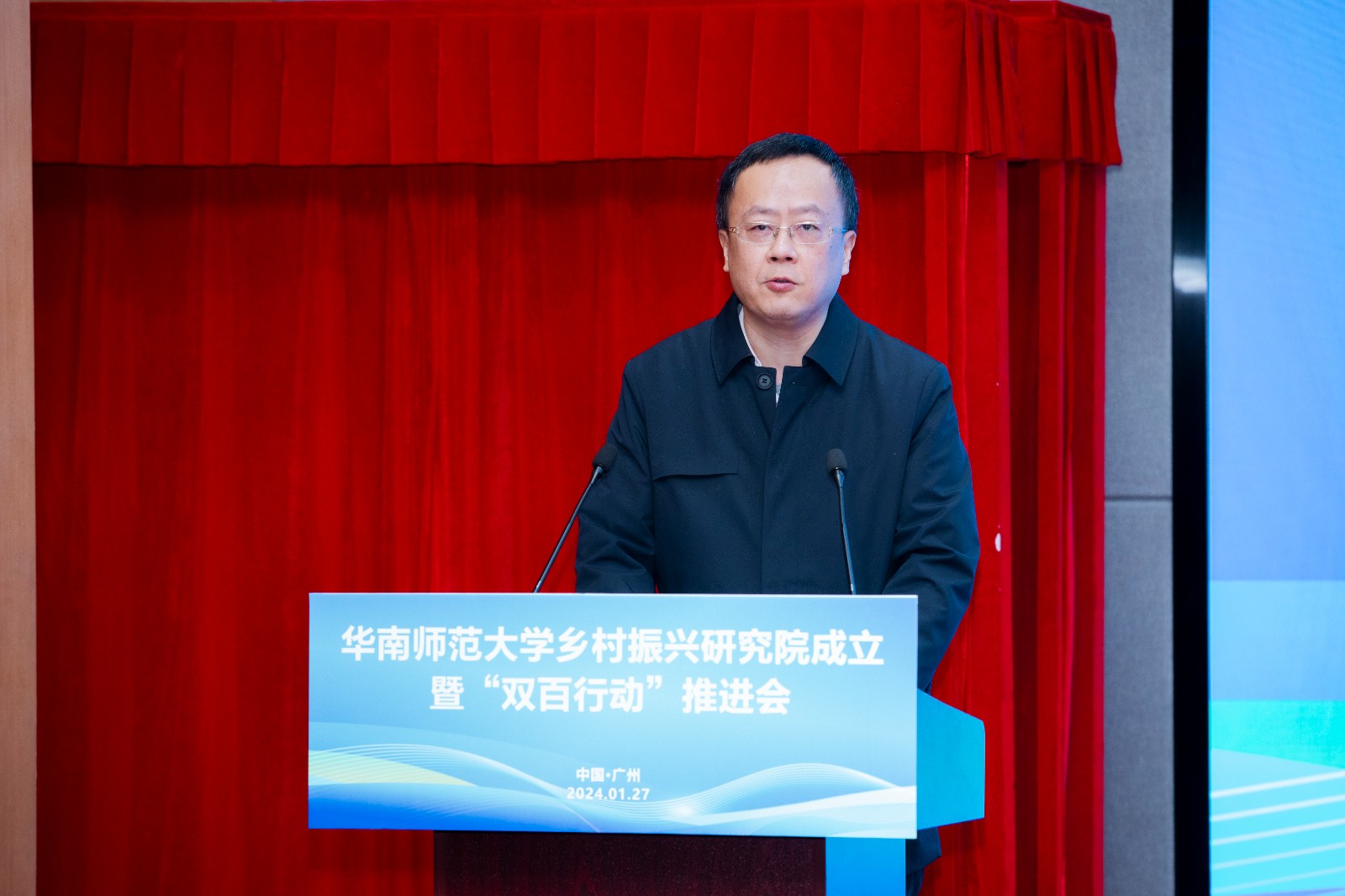
Zhu Jianhua, commissioner of the Education Working Committee of the Guangdong Provincial Party Committee, talks about the implementation situation of the project.
Zhu Jianhua, commissioner of the Education Working Committee of the Guangdong Provincial Party Committee, briefly introduced the implementation situation of the "High-quality Development Project for Hundreds of Counties, Thousands of Towns and Myriads of Villages", and stated that the Department of Education of Guangdong province will provide necessary support and guarantees for the project and the development of the Institute on Rural Vitalization at South China Normal University.
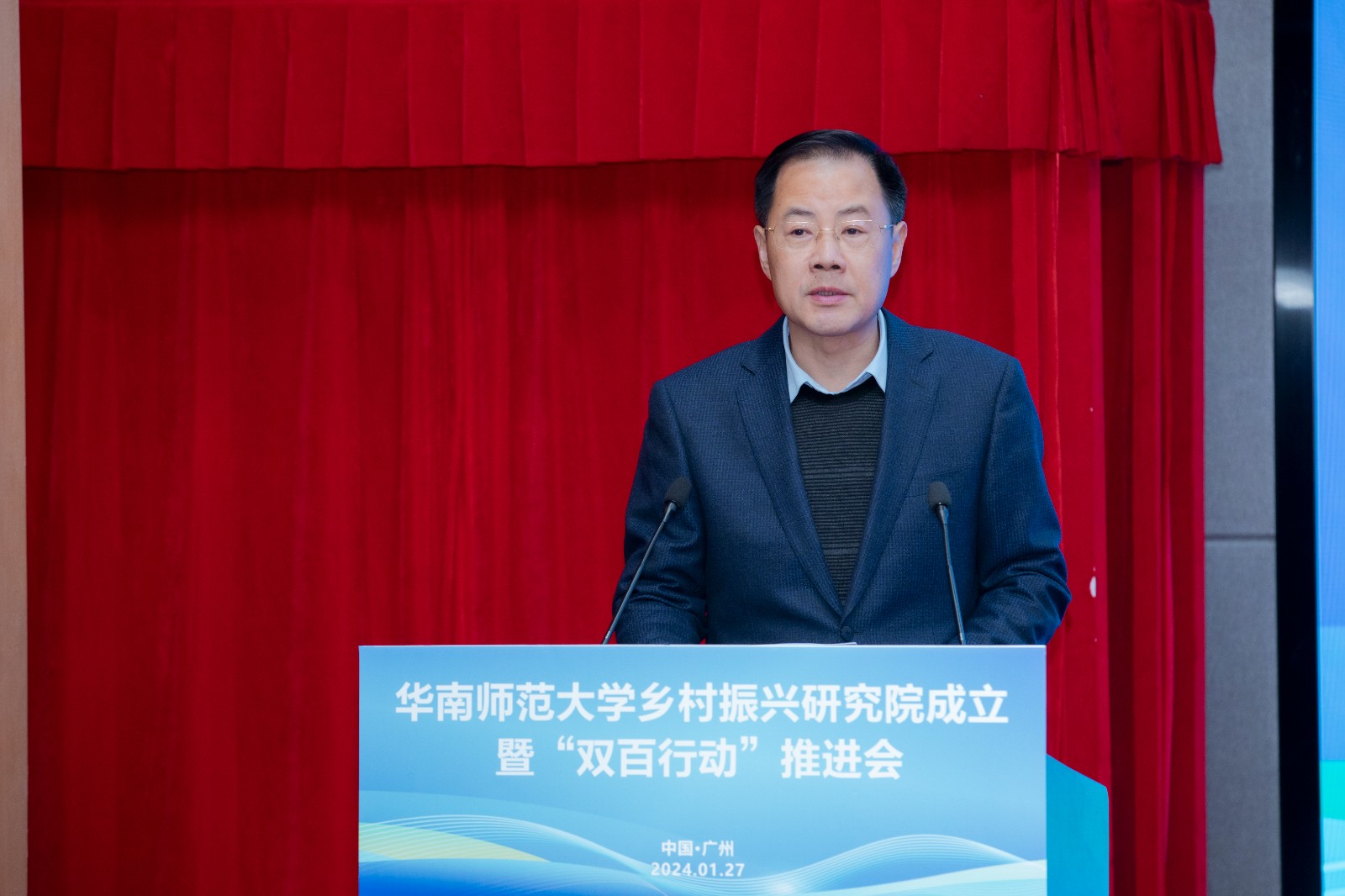
Chen Zongyun, vice-director of the Department of Agriculture and Rural Affairs of Guangdong Province, delivers a speech.
Chen Zongyun, vice-director of the Department of Agriculture and Rural Affairs of Guangdong Province, pointed out that universities are a crucial point of strong convergence of technology, talents and innovation. He expressed a hope that agricultural and rural departments in various regions should strengthen exchanges and cooperation with universities to jointly explore a collaborative and efficient system for school-locality cooperation that shares resources and benefits mutually, striving for the in-depth implementation of the project.
Wang Binwei, Chen Dezhong, Zhu Jianhua, Chen Zongyun, joined by other representatives, unveiled the name plaque of the Institute on Rural Vitalization at SCNU.
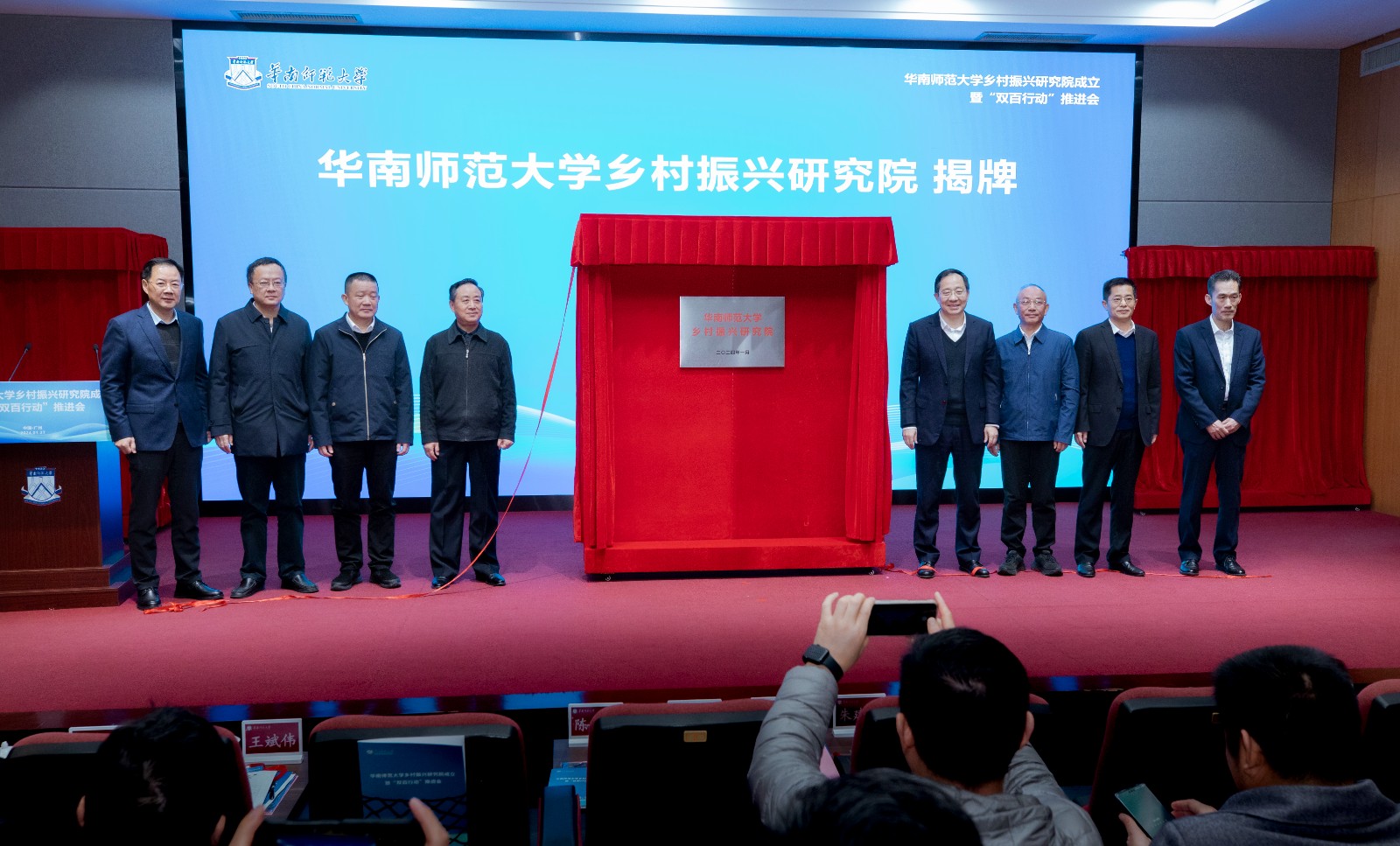
The unveiling ceremony of the Institute on Rural Vitalization at SCNU.
Liang Jian, former vice-director of the Rural Revitalization Bureau of Guangdong Province, was elected as director of the Specialist Advisory Committe of the Institute. On behalf of the elected members, Liang expressed his commitment to diligently fulfill his duties, enhance learning and research, leverage professional expertise, and gather resources, contributing to support Guangdong's rural revitalization efforts.
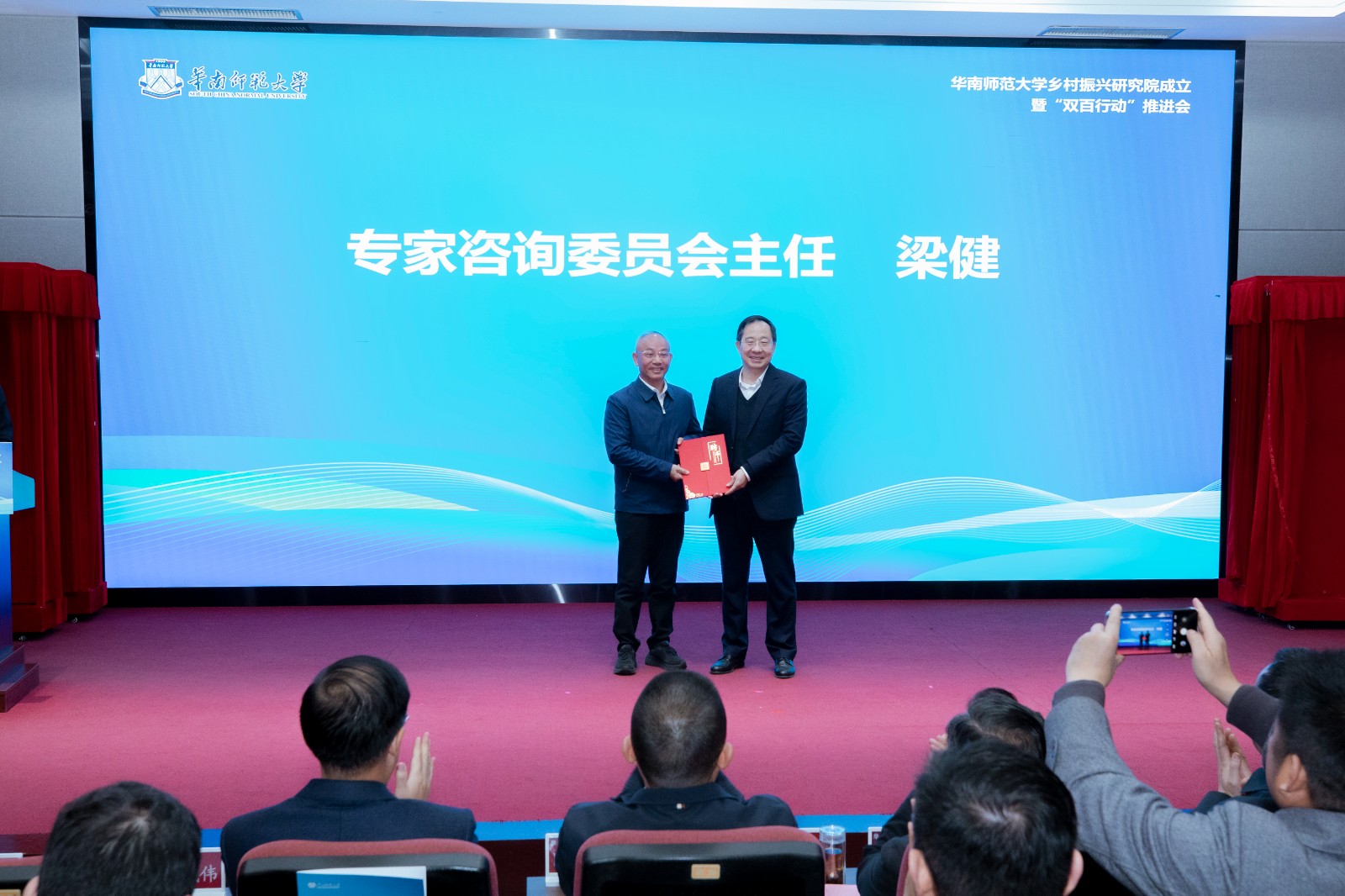
Liang Jian (on the left), accepts the letter of appointment .
Also at the ceremony, a signing ceremony between SCNU and the People's Government of Shanwei, a rural revitalization intention fund signing ceremony, a Guangdong rural CEO cultivation launch ceremony and a flag presentation ceremony were held.
Wang Binwei made a closing summary at the end of the ceremony. He elaborated on the key aims after establishing the institute from three aspects: rural education, governance, and industry. He also emphasized that SCNU should focus on results-oriented outcomes, adhere to innovative development, and continuously improve the system.
A special training session for Guangdong Rural CEOs was also held after the ceremony.
Based on the actual need of rural revitalization and relying on the disciplinary strengths of SCNU, the institute has established 10 research centers, led by professors with outstanding scientific and professional capabilities. Additionally, branch institutes have been set up in Shanwei, Xinyi and Fengkai. The institute will leverage its distinctive strengths, enhance interdisciplinary collaboration, integrate multidimensional resources, and focus on rural education, governance and industry, empowering rural revitalization with talent and technology, and contributing wisdom and strength to the coordinated development of urban and rural areas in Guangdong.
Source from SCNU News Center
Translated by Tan Haotian, Zeng Wenting
Proofread by Edwin Baak
Edited by Li Jianru
What to read next:


